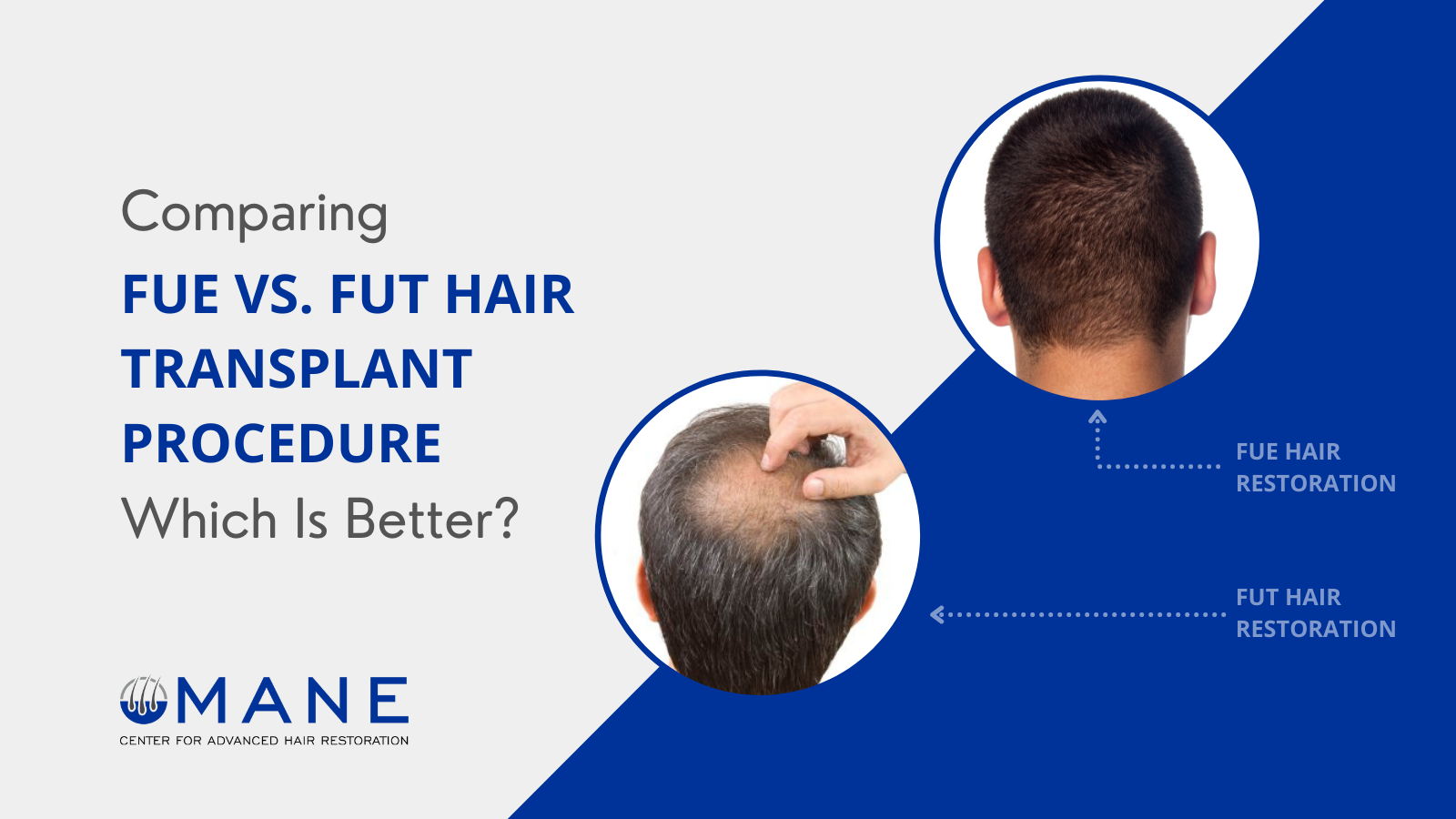Millions around the world suffer from some form of hair loss or hair thinning.
Studies suggest that in the US itself, an estimated 30 million women and 50 million men suffer from androgenetic alopecia, also known as pattern baldness. This is a highly common cause of hair loss, and the condition is often hereditary.
Advances in modern medicine and technology have made various hair loss treatments possible, including therapies and topical solutions. However, to treat significant hair loss, e.g., patients suffering from androgenetic alopecia,
FUE (Follicular Unit Extraction) and
FUT (Follicular Unit Transplantation) are the most preferred hair restoration methods. Both of these techniques are considered to be safe and have a high success rate. Are you wondering which of these is better for you? Read on to find out the difference between FUE and FUT hair transplants.
FUE Hair Transplant
In FUE, the surgeon extracts individual hair follicles from the donor area (usually the back of the head)via minute incisions. Once extracted, the surgeon transplants these hair follicles into tiny incisions made on the portion of the scalp with baldness. FUE hair transplant is a minimally invasive surgery, leaving behind minute, circular incision marks, which eventually heal and get concealed under your hair.
Advantages of FUE:
- Comparing FUE vs. FUT, FUE is a minimally invasive procedure and is relatively painless.
- The scarring is minimal.
- It does not require any stitches.
- Less recovery time.
- Patients can resume their daily activities within 2-3 days post-surgery.
- It’s suitable for patients with tight scalps.
Disadvantages of FUE:
- Donor hair area will probably become less dense
- Yields a lower amount of grafts
- Sessions can be lengthy as compared to FUT
- FUE is often more expensive as compared to FUT
- Requires the entire donor area to be shaved off
FUT Hair Transplant
Unlike FUE, in which the surgeon extracts individual hair follicles, in FUT, a linear strip of scalp is extracted from the donor area. This strip is further dissected into 500 to 2,000 follicular units, with each unit having 1-4 hair follicles. These follicular units are implanted into tiny incisions punctured on the recipient area.
Advantages of FUT
- When you compare FUE vs. FUT hair transplant, FUT yields a larger number of hair grafts that can be harvested in one session.
- FUT does not require the entire donor area to be shaved off.
- Since FUT can deliver a higher number of good-quality grafts, the results can be fuller and more natural-looking.
- The FUT procedure is less time-consuming as compared to FUE.
Disadvantages of FUT:
- At some point, the scarring is likely to be visible
- Since it is an invasive procedure, stitches are required
- Patients can experience discomfort post-surgery
- The recovery process is slower as compared to FUE
- It often is not ideal for people with tight scalps
FUT or FUE –Which one is better for you?
Choosing the ideal hair transplant technique will depend on certain factors such as the number of grafts needed, how significant your hair loss is, the type of hairstyle you usually sport, etc.
If your hair loss is currently in its initial phases and the portion of the scalp that needs to be covered is relatively small, FUE is a better option. FUE is also preferred if you are likely to wear your hair short. If you have previously had one or more strip surgeries and cannot undergo strip harvesting surgery again, then you can switch to FUE for more transplants if needed.
For patients who need a higher amount of grafts to cover a significant portion of balding, FUT is recommended. FUT is also ideal for patients who are likely to wear their hair long.
If you are looking for the
best treatment options for hair loss, consult our team of experts at the Mane Center for Advanced Hair Restoration.


